All Stories
-
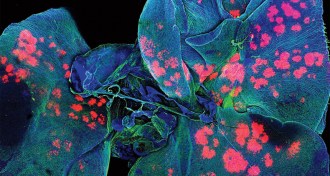 Health & Medicine
Health & MedicinePink blobs of hope in cancer-targeting quest
Cancer drugs coated with plastic can reach a mouse’s lungs for targeted delivery, but steering the capsules to the right spots can be a challenge.
-
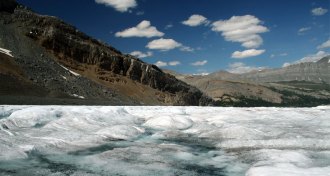 Climate
ClimateCanadian glaciers face drastic demise
Western Canadian glaciers will shrink 70 percent by 2100, a detailed melting simulation suggests.
-
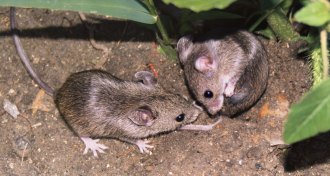 Animals
AnimalsMouse mates with similar personalities start families faster
Among monogamous mound-building mice, the more closely mates match in a tendency toward anxiety, the sooner they start having babies
By Susan Milius -
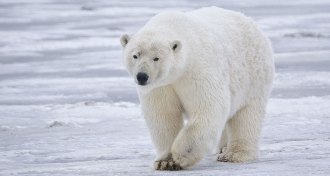 Animals
AnimalsEggs and other land foods won’t feed polar bears
Polar bears will not be able to survive on land by eating birds, eggs and vegetation, a new review concludes.
-
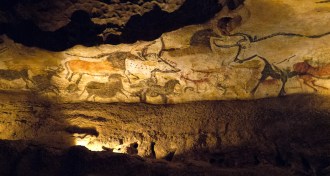 Animals
Animals‘Domesticated’ explores how humans have altered animals
Science journalist Richard Francis delves into the genetic changes humans have caused in dogs, cats, pigs, horses, camels and more.
-
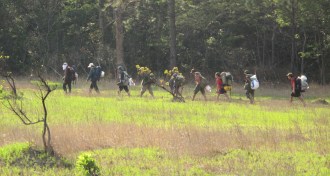 Animals
Animals‘The Last Unicorn’ takes readers on quest to see a saola
Nature writer William deBuys introduces readers to the enigmatic saola of Southeast Asia.
-
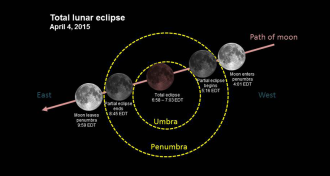 Astronomy
AstronomySaturday’s lunar eclipse will be total, but brief
A brief total lunar eclipse on April 4 favors observers from western North America to Australia.
-
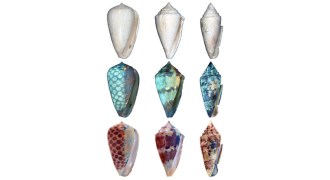 Oceans
OceansUV light reveals hidden patterns on seashell fossils
Under UV light, fossil seashell color patterns glow, a researcher finds.
-
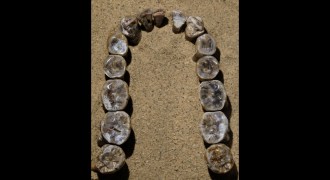 Anthropology
AnthropologyAncient Homo fossils found in Kenya
Finds from three individuals add to skeletal diversity of early members of human genus.
By Bruce Bower -
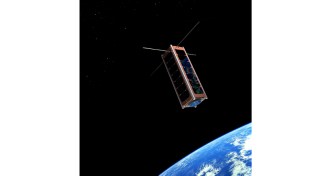 Planetary Science
Planetary ScienceMinisatellites could detect dangerous asteroids, researchers propose
Five tiny telescopes orbiting the sun could provide early warning for an Earth-bound asteroid, though other researchers disagree.
-
 Environment
EnvironmentFive years on, Deepwater Horizon oil spill’s impact lingers
Five years after the Gulf of Mexico’s largest disaster, researchers are still studying its ecological impact and struggling to learn the fate of most of the spilled oil.
By Beth Mole -
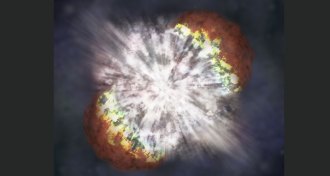 Astronomy
AstronomyPrimordial stars left their imprint on dwarf galaxy
A smattering of stars in a dwarf galaxy outside the Milky Way witnessed explosions from the first generation of stars.